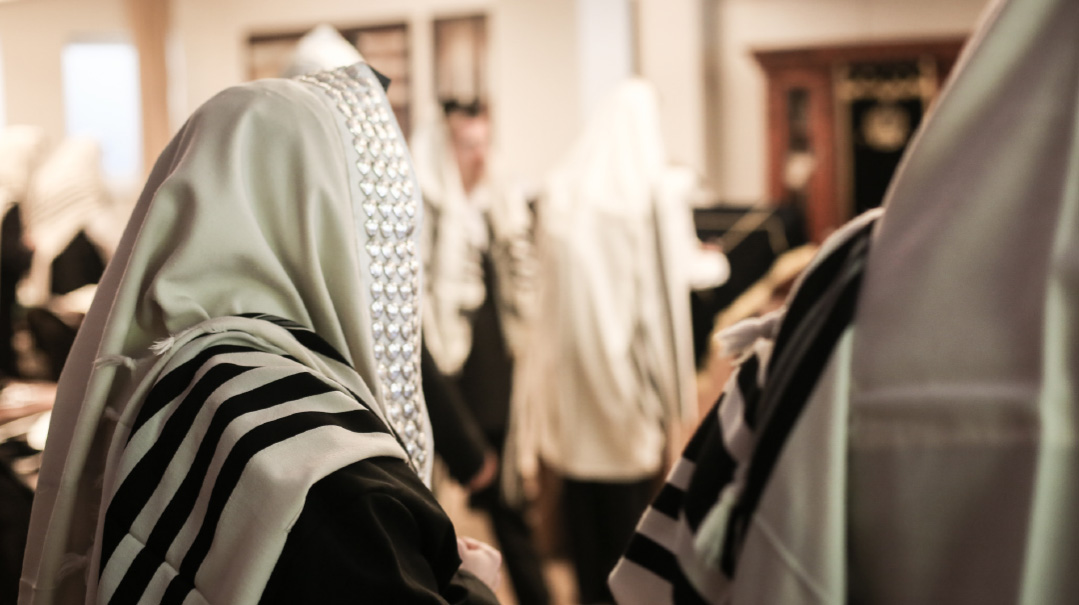Let the True Light Shine

The Chanukah miracle was the last obvious and open communication we had with Hashem
For those readers of this space who are either blessed with a good memory or save old editions, you may recall a vort I shared a number of years ago on a cryptic passage from the Rambam in Hilchos Chanukah. He writes there that ner Chanukah is a “mitzvah chavivah ad me’od,” an extraordinarily beloved mitzvah. He does not use this expression anywhere else to extol the virtues of any of our other mitzvos, whether mandated by the Torah or mid’Rabbanan, such as this one. What is so unique about it?
Perhaps the Gemara can shed some light on this. In Maseches Yoma the Gemara states that the miracle involving Esther was “the last of the [public] miracles” that Hashem orchestrated for His nation. That is followed by an obvious question —the Chanukah miracle occurred even later! To that, the Gemara clarifies that the Purim miracle was the last to be recorded in a formal book of Tanach, not the last miracle to be performed.
This means that for all intents and purposes, Chanukah was the last time Hashem manifested His love for us by manipulating the natural order of the world on our behalf. To put it differently, the Chanukah miracle was the last obvious and open communication we had with Hashem. It was a signature moment.
We all cherish our final conversations with beloved ones. Indeed, the Gemara puts a premium on parting words: “Al yiftar adam mei’chaveiro ela mitoch devar halachah” — one should not part from his friend with anything but a Torah thought, for that is how they will remember each other.
If the neis Chanukah could be considered Hashem’s “parting words,” then His message was simply, “I love you and I will even manipulate Maaseh Bereishis for you to exhibit that love.”
It has famously been pointed out that the entire miracle wasn’t even necessary; halachah would have allowed for impure oil to be used under the circumstances of the entire tzibbur being tamei. Yet to illustrate His special love, Hashem wrought the great miracle of the flask of pure oil. His signature message was simple: He loves us more than anything, more even than the very world He created to run in its natural course.
This could be why the Rambam calls the mitzvah of ner Chanukah so beloved. It evokes that signature message: that although we do not see miracles on a daily basis, ner Chanukah was Hashem’s vehicle to show us that eternal love.
How is this message relevant to us today?
I recently had the opportunity to address two separate communities that had suffered tragic losses. Compounding their pain was that neither of these communities was prepared for the devastation. The tragedies took place suddenly, without any warning. After consulting with prominent talmidei chachamim and mental health experts, I was left to my own devices to deliver a message that would resonate and be of value going forward.
We are all living in a reality that reminds us that we can’t make any assumptions about what the next day will hold. People we know and love today are suddenly taken back to where Hashem wants them to be for eternity, sometimes without giving anybody a chance to say goodbye.
What would life look like, Rachmana litzlan, if we were called upon to have a conversation with someone dear who would only be among us a few more moments? Would we not want to part company on the warmest and most loving of terms? Would we give our beloved even a hint that they were annoying or unpleasant company? Certainly not!
The Gemara instructs us to do teshuvah a moment before we leave this world. The question immediately follows that no one knows when that will be. And of course, the Gemara answers that it leaves us with no other choice than to do teshuvah every day, for it may be our last.
We should incorporate the lesson of this Gemara into our daily interactions with everyone we meet. (Although, ideally, without infusing all our waking moments with a sense of the macabre.) What if this is indeed the last interaction I will have with this person? Would I not rather it end with the feeling of “I love you” than “I wish you were somewhere else right now?” Does my facial expression convey acceptance and happiness at being in my friend’s company, or something else?
Think about it. We interact daily with children, spouses, employers, employees... the list is endless. How would we feel if we spoke harshly and parted ways on unpleasant terms — and then the most unimaginable thing happened afterward? Could we live with the pain, regret, and guilt?
Picture a world in which every conversation ends with closeness and warmth, pleasant expressions on our faces and happy feelings in our hearts.
Can we take the grief that descends upon us again and again and use it as a catalyst for engendering warmth and love with everyone who walks into our temporary world, by simply acknowledging our acceptance and appreciation of each other? Can’t that be the last emotion that we each carry with us until tomorrow?
There is a very popular tourist attraction just over the Indiana-Kentucky border (that’s considered close by in our part of the country) known as the Louisville Slugger Museum and Factory. This is the place where baseball bats are manufactured for major league baseball players as well as for the hamon am (plain old regular people like us). For baseball aficionados, the museum is not just a place to see how they make bats to all different specifications, but it is also a place to touch and see history of America’s pastime and wax nostalgic over childhood memories of yesteryear.
Among the many exhibits are actual bats that were used by some of the most famous stars of the sport. The tour guides share many stories about the various kepeidos, particulars, that some players have about their equipment. One such anecdote can, believe it or not, serve as a tremendous lesson in our approach to how we interact with each other.
One of the most prolific hitters in the history of the game was inducted into its “hall of fame” for his skill in handling the wooden bat. He ordered his bats with very detail specifications, down to the knob at the end of the grip. Once, after he received his order, he immediately turned to the employee who was honored to deliver the goods, and gave the bats back on the spot. He claimed he could immediately tell that that the bottom of the handle was off by 0.5/100th of an inch. This was absolutely unacceptable to him, and he demanded they be remade.
Even the most finicky person can only be amazed — first of all at what a perfectionist he was, but beyond that, how he could detect the minute deviation from his specifications.
This gives us great insight into human perception. With something so significant in one’s life, the slightest imperfection is clearly and immediately recognizable. To a baseball slugger, everything must be just so, and the minutest flaw simply will not cut it. He can spot it in an instant, and the merest defect in the lumber is all that separates a baseball legend from just another rookie on a trading card.
L’havdil elef alfei havdalim — can a friend not detect the difference between a sincere smile and compliment and one offered just to be yotzei? Can a spouse not distinguish between a term of endearment emanating from the heart and some nusach being recited by rote from pre-marriage lessons? Can an employee not note the contrast between “You did a great job!” offered with 100 percent sincerity and feedback laced with condescension, lacking heart? What might be 0.5/100th of an inch off on a baseball bat can feel like 1,000 feet off inside the deepest recesses of one’s heart.
We are living through a time when facial expressions are obscured, and much communication has been reduced to electronically written words. Are we being smiled at through that mask or are we being scorned? The normal human experience of expressing satisfaction, love, and appreciation, is under attack by this new reality of the absence of natural human contact and interaction. We all suffer from it, certainly more than anyone will admit. We need to be cognizant of this so that we do not become stuck in the rut of just communicating electronically and robotically, forgetting how to share our feelings and appreciation for each other.
Perhaps this is what we should take from the Chanukah lesson the Rambam is teaching us. Hashem manifested His love for us without any masks, with no holds barred. There was nothing besides His unbridled love on display for all to see. And we want everyone else to see it too — so we proudly place our menoros in our windows and doorways, demonstrating our belief in that eternal love.
Can we make an attempt to follow in His ways and express that same love and appreciation to all those around us, even down to the last percent of that smile?
It is a challenge worth undertaking. (Or maybe, as the vernacular goes, we can hit it out of the park.)
A freilechen Chanukah!.
Rabbi Plotnik, a talmid of the yeshivos of Philadelphia and Ponovezh, has been active in rabbanus and chinuch for 25 years and currently serves as ram in Yeshivas Me’or HaTorah in Chicago.
Originally featured in Mishpacha, Issue 888.
Oops! We could not locate your form.







